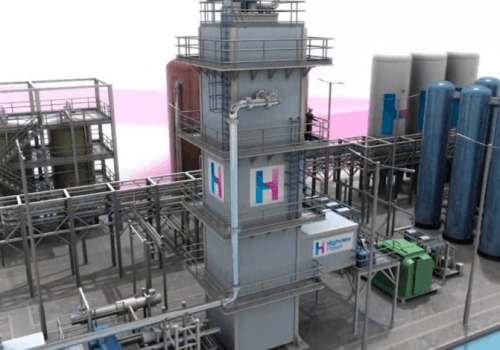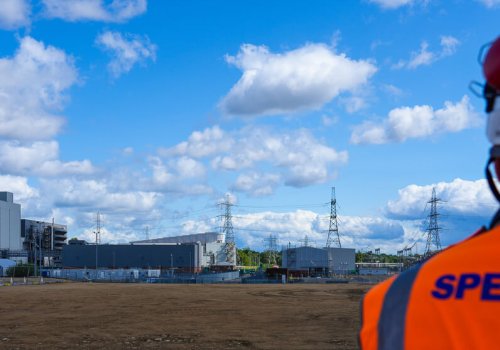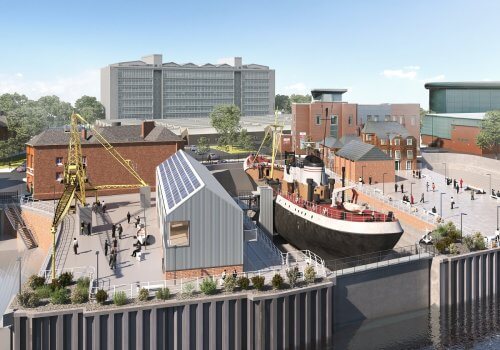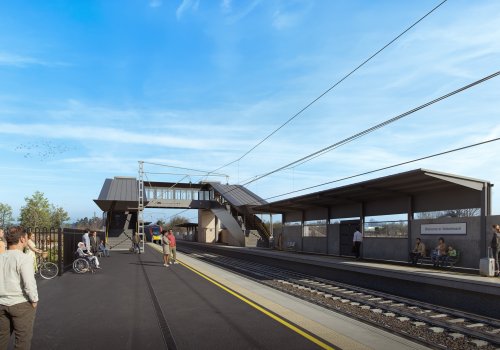The Wessex rail route is one of the busiest and most congested routes on the entire UK network.
It is a major commuter area, providing long-distance services from the south and south-west of England to London Waterloo and a carries a significant amount of freight to the south-coast ports.
On completion, the Wessex Package 7 project will have seen Spencer Rail design and deliver the lengthening of platforms at 48 station sites across the Wessex area.
This programme of works forms part of the wider TLP, which aims to allow the operation of longer trains on key routes within the South East of England to deliver a higher passenger capacity into major London terminus stations.
Delivered in four-station batches, with more than 2,500m of platform being constructed, Spencer Rail is responsible for the renewal of more than 1,400m of plain line, the installation of seven point ends (three crossovers and one turnout) as well as the fitting of new and transposed conductor rails to a length of more than 2,600m.
Along the way, 39 new signals will be installed as well as 49 new location cabinets with all the associated fit out and cabling, together with 11 DNO upgrades.
In Wessex, Spencer Rail designed and developed a unique way method of constructing the platform extensions that, through value engineering, saved more than £2m. The new GRP platforms were designed so that they could be installed without the need for disruptive possessions – saving thousands of man hours and significantly reducing risks at dozens of busy locations
Early in the New Year, we caught up with Spencer Rail’s Wessex Package 7 Programme Director, Samantha Wadsworth, in the run up to her team’s busiest period yet.
Samantha, who joined the company from a senior project management role within Network Rail last summer, said: “Last year was incredibly busy with major projects delivered at stations throughout the Wessex area. Works at Guildford and Strawberry Hill were especially challenging with some significant milestones reached.
“Our team worked hard to deliver completed platforms for 10-car running at 10 stations, including and between Guildford and Epsom, all in time for the timetable change on 09 December.”
This realised a significant milestone for Spencer Rail and is a direct result of great efforts and many long hours put in by the Wessex Package 7 team including colleagues from Network Rail and supply chain partners.
Samantha continued: “A great deal of progress has also been made on various other stations over the past couple of months; the Wessex Package 7 team have completed all but one signalling commissioning, as planned, in the lead up to Christmas. Additionally Epsom Sidings has been commissioned.
“However, the first quarter of 2014 will see the most intense period of work on the project to date.
“Our civils project managers will be working to bring 27 stations to substantial completion by the end of March. 14 of these stations are still in the early stages of construction, whilst the remainder require a few days of finishing work.
“Similarly we have a number of significant possessions coming up over the next three months to bring the infrastructure and signalling works to completion.”
Wessex Package 7 is widely thought to be one of the most demanding projects in the South of England with significant works taking place during the week, overnight and at weekends – testing the very best possession planners in the industry. The busy nature of the railway in this important network makes the task even more challenging.
Although the package of work for the first quarter appears challenging, Samantha is confident that this can be delivered successfully.
“A number of the stations are already nearing completion. Clandon is virtually finished with only some re-commissioning of a points motor outstanding. Likewise, at Guildford, we are in the process of tamping prior to snagging and handing back to the client whilst the platform extension at Oxshott was completed in a week.
“Guildford North Box, a £3m additional project to bring an old sidings back into a serviceable train yard, is now underway. This has to be delivered using road haulage which adds complexity of the work.
“Epsom Sidings have been handed back whilst the platform extension at Stoneleigh is in the final stages of completion – as is the work at Chessington South.
“Platform extension work at Worcester Park is due to finish in January along with similar work at Raynes Park, Hinchley Wood, Cobham, Norbiton and Earlsfield. The signal work and platform extension at Berrylands will be completed in February, as will the platform extension work at Fulwell.
“By February, the platforms at Hampton will be completed following signalling commissioning. The platform extensions at New Malden, Clapham Junction, Ewell West and Claygate will also be completed. At Strawberry Hill, the second half of the cross over will be completed along with the platform extensions, with signalling commissioning taking place in Week One.
“Extensive work has been undertaken at Effingham Junction Sidings, with signalling work, track adjustment and a new drivers’ walkway being completed by Week 50 along with new P-way and signalling commissioning in the sidings.
“Whilst many of these stations have been relatively straight forward for a company of Spencer Rail’s experience, there are a number of locations which are challenging and technically complex from an engineering and planning perspective. The work at Kingston involves an elevated platform spanning a busy highway which requires planning permission.
“The Wessex region is particularly challenging to work on due to its strategically important position in the network. As a result, gaining access to undertake construction works is often a difficult yet critical factor in successfully delivering the Package 7 project on time and within budget.
“Whilst we obviously want to complete the job on time and within budget, we are also well aware of our responsibility to avoid inconveniencing customers, or where this is unavoidable, ensuring that the most appropriate and effective mitigation measures are in place.
“Our main aim is to avoid any form of disruption, and with careful planning and the use of night working, we have been able to do this. However, it is always a case of striking a balance between work affecting passengers and work affecting local residents and businesses.
“This highlights another important skill set for contractors working in heavily populated areas such as the Wessex region, and one which is often overlooked when faced with technically complex projects – that of community relations.
“Whilst quite rightly there is a focus on not inconveniencing passengers or train operating companies, it is also important to remember that the contractor and station operator need to be a good neighbour to residents and businesses in the immediate area. Operations at night are sometimes an unavoidable element, but it is important to ensure that local residents, businesses and stakeholders are kept informed of this work, in advance of it happening.
“Spencer Rail has invested heavily in a communications and community relations team to ensure good relations are maintained with rail neighbours. This work has already paid dividends on a number of our sites and we are fast being recognised as one of the best there is for this important area of our work.”
The Wessex Package 7 team works very closely with Network Rail and their supply chain partners from a co-located office within Spencer Rail’s southern-based HQ at London Waterloo.









